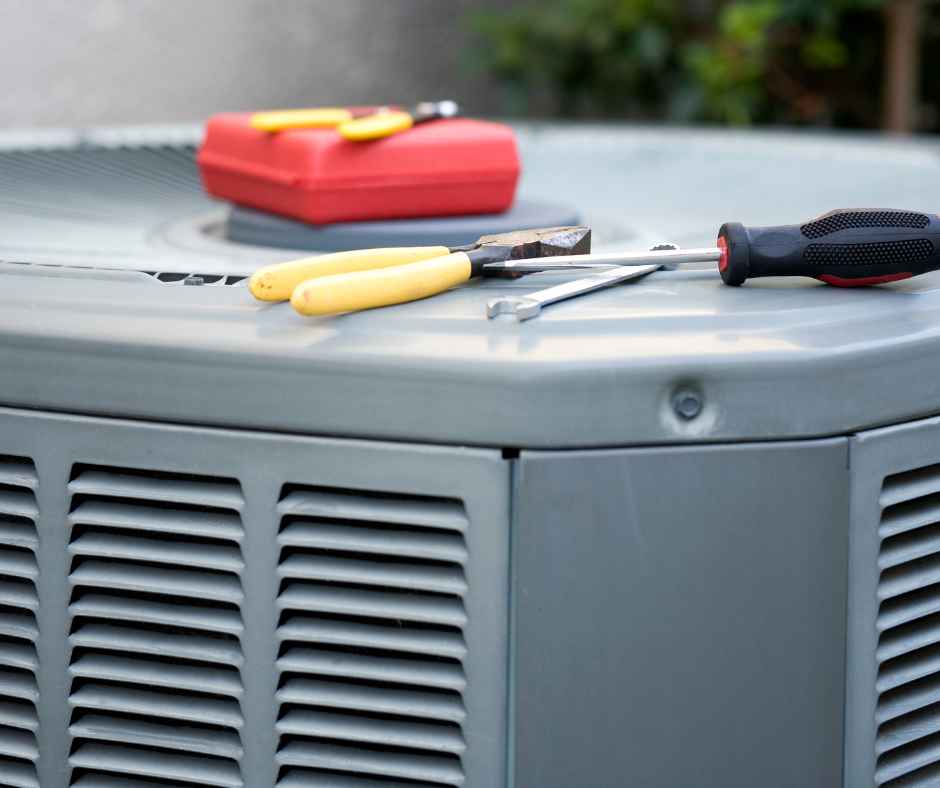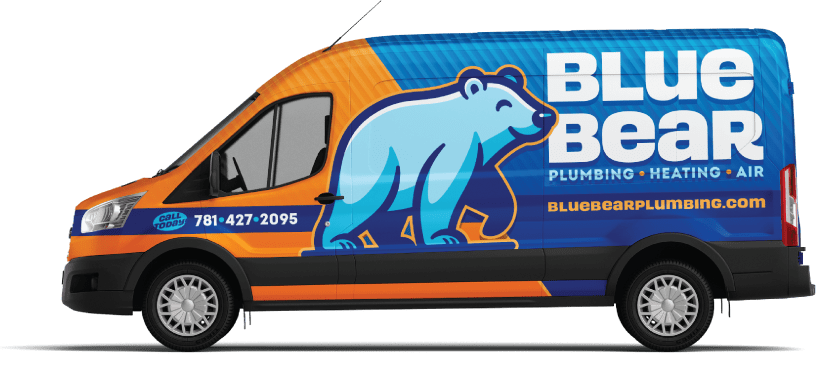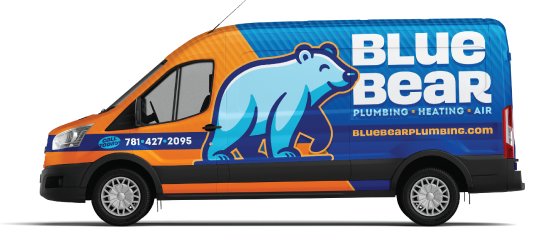Why HVAC System Age Matters When Considering Replacement

Your HVAC system is one of the most important parts of your home’s comfort. Like any appliance, heating and cooling equipment has a limited lifespan. One of the biggest factors to consider when choosing between repair and replacement is the age of your HVAC system. An older unit can increase your energy bills, require frequent repairs, and make it harder to maintain a comfortable temperature indoors.
In this blog, we will look at why HVAC system age matters, how it impacts performance and efficiency, and the main signs that it may be time for a replacement. We will also share how the experts at Blue Bear Plumbing, Heating & Air can help you decide on the best solution for your home.
Why HVAC System Age Matters
Every HVAC system has an expected lifespan. Most central air conditioners and furnaces last between 15 and 20 years with proper maintenance. However, even if your system is still running, its age can have a big impact on performance and efficiency.
As an HVAC system gets older, its components begin to wear down. The unit may have to work harder to heat or cool your home, which often leads to higher energy bills. Older systems are also more likely to break down unexpectedly, leaving you without heating in the winter or cooling in the summer.
Another important factor is technology. Newer HVAC models are designed to meet modern energy efficiency standards and often include features such as variable-speed motors and compatibility with smart thermostats. These upgrades can make a noticeable difference in both comfort and long-term savings.
This is why system age should always be a top consideration when deciding whether to continue repairing an existing unit or to invest in a replacement.
Signs Your HVAC System Is Too Old
Knowing when to replace your HVAC system often comes down to recognizing the warning signs. While routine maintenance can extend the life of your equipment, there are clear indicators that age is catching up to your system.
1. Uneven Heating or Cooling
Older systems often struggle to maintain consistent temperatures throughout the home. You might notice hot or cold spots in certain rooms, which is a sign the system is no longer operating efficiently.
2. Rising Energy Bills
If your utility bills have been increasing without changes in usage, your HVAC system may be working harder than it should. This reduced efficiency is a common problem in aging equipment.
3. Frequent Repairs
When repair calls become regular, the costs can quickly add up. Spending money to keep an old system running often makes less financial sense than investing in a replacement.
4. Outdated Technology
Older HVAC systems may not meet today’s energy standards or work with smart thermostats and other modern upgrades. This can limit your ability to improve comfort and efficiency.
5. Age Beyond 15–20 Years
Even if your system still turns on, once it reaches the 15- to 20-year range, it is nearing the end of its expected lifespan. At this point, replacement is usually the most cost-effective option.
Recognizing these signs early allows homeowners to plan ahead for HVAC replacement rather than facing a sudden breakdown during peak heating or cooling season.
Age vs. Efficiency: Why Older Systems Cost More to Operate
As HVAC systems get older, they naturally lose efficiency. This is because motors, coils, and other components wear down over time, forcing the system to use more energy to achieve the same level of comfort. Even with regular maintenance, an aging system cannot match the efficiency of newer models.
Lower SEER Ratings
Older air conditioners typically have a lower Seasonal Energy Efficiency Ratio (SEER) rating compared to today’s standards. Modern systems are built to meet or exceed minimum energy efficiency requirements, which means they use less energy to cool your home.
Higher Utility Bills
When an older system has to run longer cycles to maintain the temperature, your monthly energy costs rise. Over time, the additional utility expenses can far outweigh the cost savings of delaying replacement.
Reduced Comfort
Aging HVAC systems often struggle to keep up during extreme heat or cold. They may run constantly without ever achieving the desired temperature, leaving you uncomfortable despite higher energy use.
The Value of an Upgrade
By replacing an older unit with a high-efficiency system, homeowners can enjoy lower monthly bills, improved comfort, and access to modern features such as smart thermostat integration and advanced humidity control.
Repair or Replace? Factoring in HVAC System Age
Deciding whether to repair or replace your HVAC system often comes down to its age and condition. While minor issues can sometimes be fixed affordably, older systems may no longer justify the repair costs.
When Repairs Make Sense
If your system is less than 10 years old and has been properly maintained, repairs can often extend its lifespan. Replacing a worn part or fixing a small issue may be all that is needed to keep the unit running efficiently.
When Replacement Is the Smarter Choice
If your system is 15 years or older, replacement is usually the most cost-effective option. Older units are more likely to need repeated repairs, and the combined expense can quickly surpass the cost of installing a new, energy-efficient model.
The 50 Percent Rule
HVAC experts often recommend the “50 percent rule.” If the cost of repairing your system is more than half the price of a replacement, investing in a new unit is the better financial decision. This guideline helps homeowners avoid sinking money into equipment that is nearing the end of its useful life.
Long-Term Value
A new HVAC system provides more than just reliability. It delivers energy savings, improved comfort, and modern features that make your home easier to manage. While repairs may offer a short-term fix, replacement ensures peace of mind and long-term savings.
Benefits of Replacing an Aging HVAC System
Upgrading an older HVAC system is an investment that pays off in several ways. Beyond avoiding the frustration of frequent breakdowns, a new unit offers tangible benefits for both comfort and cost savings.
Lower Energy Bills
Modern HVAC systems are designed with higher efficiency standards. This means they use less energy to heat and cool your home, reducing monthly utility costs. Over time, these savings can add up to thousands of dollars.
Improved Comfort
New systems regulate temperature and humidity more effectively, eliminating hot and cold spots throughout the home. Many also include variable-speed technology that adjusts airflow for consistent comfort.
Better Indoor Air Quality
Aging systems can accumulate dust and allergens, which may circulate through your home. Newer models often include advanced filtration and humidity control, leading to cleaner, healthier indoor air.
Increased Home Value
Buyers are often willing to pay more for a home with a recently installed HVAC system. A new unit is a strong selling point because it signals lower operating costs and fewer near-term expenses.
Peace of Mind
With warranty coverage and reliable performance, a new HVAC system provides confidence that your home will stay comfortable no matter the season.
Replacing an outdated unit is not just about avoiding breakdowns. It is about improving your home’s comfort, saving money in the long run, and enjoying the benefits of modern technology.
How to Know the Exact Age of Your HVAC System
Before you can decide whether repair or replacement makes sense, you need to know exactly how old your HVAC system is. Fortunately, there are a few simple ways to find this information.
Check the Manufacturer’s Label
Most HVAC units have a label or nameplate that lists important details such as the model number, serial number, and sometimes the date of manufacture. This label is usually found on the outside of the unit.
Decode the Serial Number
If the manufacture date is not printed, you can often determine the age by reading the serial number. Each manufacturer uses a different format, but the first few numbers or letters usually indicate the year and week the unit was made.
Look at Installation Records
If you still have paperwork from when the system was installed, it should list the installation date. This is a reliable way to confirm the system’s age.
Ask an HVAC Professional
If you are unsure how to read the label or serial number, an HVAC technician can quickly identify the age of the system during an inspection. They can also give you an honest assessment of whether it makes sense to keep repairing or to plan for replacement.
Knowing the exact age of your HVAC system helps you make smarter decisions about repair, maintenance, and replacement planning.
Work With a Trusted HVAC Professional
While system age is one of the most important factors in deciding between repair and replacement, it should not be the only one. Every home and every HVAC system is different, which is why working with a qualified professional is so important.
Expert Evaluation
An HVAC technician can assess the overall condition of your system, check efficiency levels, and identify hidden problems that may not be obvious. This evaluation helps determine whether repairing the unit is a smart option or if replacement is the better long-term investment.
Personalized Recommendations
A trusted professional will also take your home’s size, comfort needs, and budget into account. Instead of guessing, you get tailored advice on the best solution for your household.
Professional Installation
If replacement is recommended, expert installation ensures your new HVAC system performs at its highest efficiency. Proper sizing, ductwork inspection, and correct setup are key factors in long-term reliability and comfort.
At Blue Bear Plumbing, Heating & Air, our team is committed to helping homeowners make the right choice. Whether your system needs a repair or a full replacement, you can count on us for honest guidance and reliable service.
Trust Blue Bear Plumbing, Heating & Air For Your HVAC Needs
The age of your HVAC system is one of the most important factors to consider when deciding between repair and replacement. Older systems not only cost more to operate but also deliver less comfort and require more frequent repairs. By knowing the age of your unit and recognizing the signs of decline, you can plan ahead and avoid unexpected breakdowns.
Replacing an aging HVAC system comes with clear benefits, including lower utility bills, improved comfort, better air quality, and the peace of mind that comes with reliable performance. With the right professional guidance, you can make a decision that protects your comfort and saves money in the long run.
At Blue Bear Plumbing, Heating & Air, we help homeowners throughout the area evaluate their HVAC systems and choose the best path forward. Whether you need an inspection, repair, or full system replacement, our team is ready to help. Contact us today to get started.
Contact Us Today

Routine maintenance is vital for the longevity of your plumbing, heating, and air conditioning systems. Sign up for our Blue Care Maintenance Plan for annual service and exclusive membership benefits, including:
- Priority scheduling
- Waived service fee during normal business hours
- 10% discount on service calls
- 3% discount on new installations
- Two-year parts and labor warranty on new equipment






